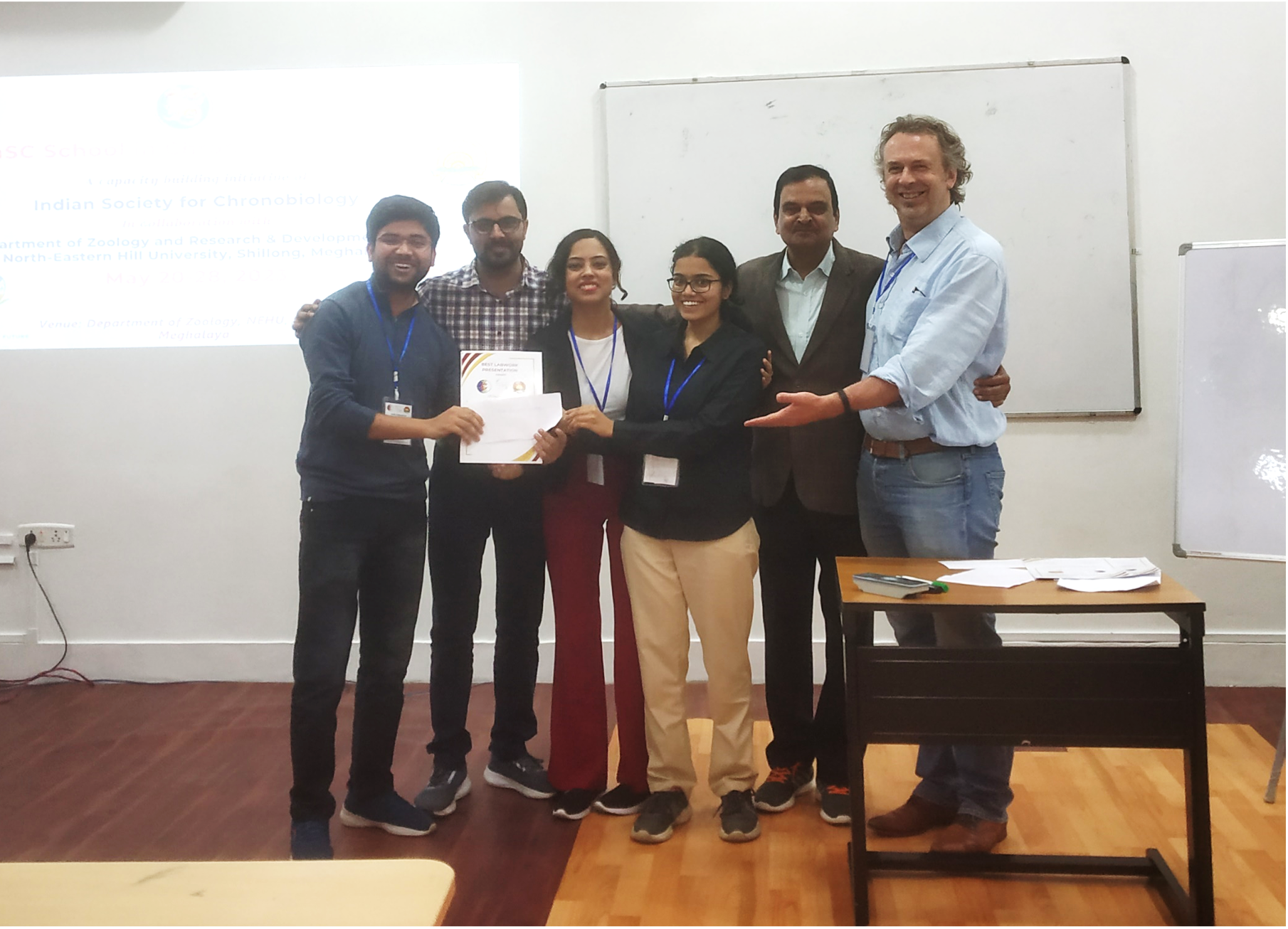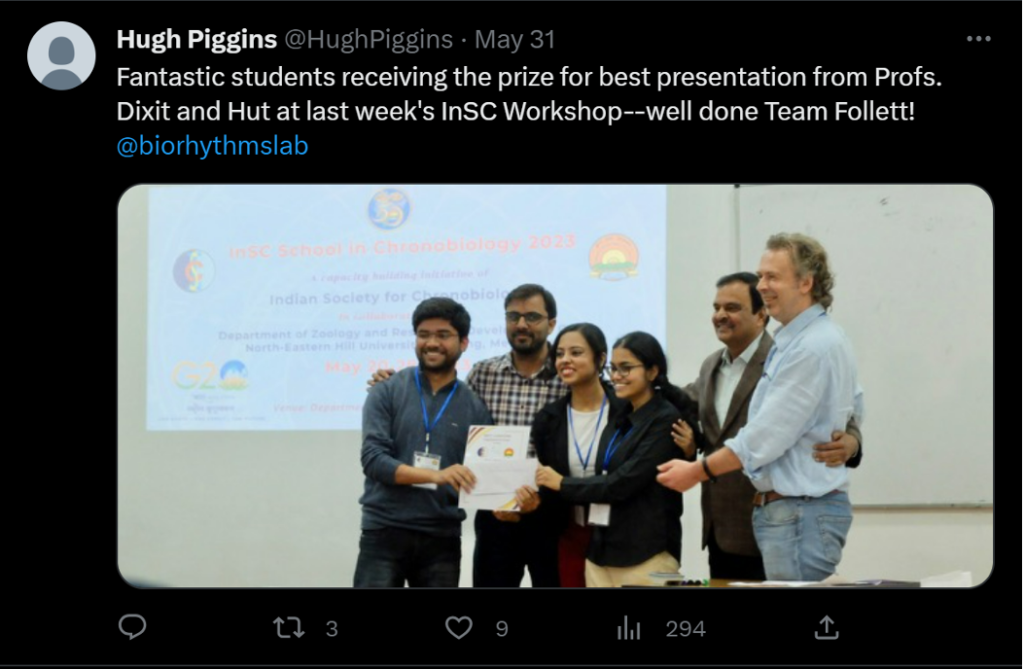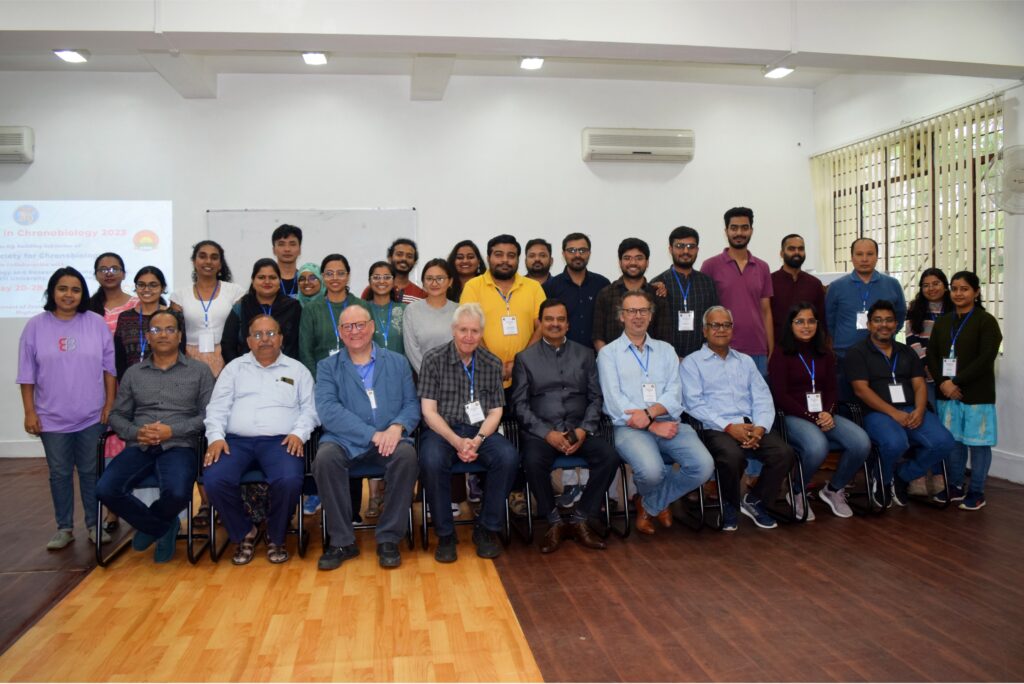Founded on the 12th of December 1977 in Mumbai, the Indian Society for Chronobiology has been at the forefront of chronobiological research and the promotion of this fascinating field. Over the years, they’ve played a pivotal role in organizing workshops, annual forums for the exchange of ideas, and the growth of a vibrant community of chronobiologists and students. This year, in collaboration with the Department of Zoology and Research and Development Cell at North Eastern Hill University (NEHU), a workshop was organized from the 20th to the 28th of May in the picturesque city of Shillong, Meghalaya.
The moment I saw the poster for the workshop, I was captivated by the three compelling reasons to attend. First, the star-studded lineup of professors leading the workshop, second, my deep-seated interest in the subject of Chronobiology, and third, the promise of a short respite in the serene city of Shillong. Without hesitation, I enrolled myself for this unique experience.
Our journey began on the 19th of May, when we gathered to register for the workshop. At the registration desk, we received the program schedule, which only heightened our excitement. The official classes commenced on the 20th of May with a welcoming introduction to the Indian Society for Chronobiology. The President of the society, Prof. Vinod Kumar, initiated the learning process with an insightful lecture on the fundamentals of biological rhythms. He meticulously explained the essential terminologies that would form the bedrock of our discussions throughout the workshop.
The knowledge-sharing continued with a lecture by Dr. Sheeba Vasu, an associate professor from the Neuroscience unit at JNCASR. Dr. Vasu delved into the regulatory functions of neuronal circuits in drosophila, covering topics like locomotor activity, sleep patterns, adult-emergence, feeding habits, and egg-laying behaviors. The workshop also featured the expertise of Dr. Sougato Roy from Ashoka University and Dr. Shaon Chakrabarti from NCBS, who shared their knowledge on topics like circadian organization in phytoplanktons and “R” coding, which was a completely new and fascinating subject for many of us.
One of the most intriguing sessions was conducted by the SERB distinguished fellow, Prof. Mewa Singh, who presented his research on the emergence of novel monkeys in human-dominated landscapes. He explored the evolutionary behavioral differences between urban and wild monkeys and highlighted the impressive problem-solving abilities of city monkeys. Watching videos of monkeys solving puzzles was both entertaining and enlightening.
What made this workshop truly exceptional was the participation of renowned international faculty members. Prof. Russel Foster from the University of Oxford (England), Prof. Roelof Hut from the University of Groningen (Netherlands), Prof. Takashi Yoshimura from Nagoya University (Japan), and Prof. Hugh Piggins from the University of Bristol (England) brought their expertise and enthusiasm to the table. Their dedication to sharing their knowledge made the learning experience incredibly engaging. It was in the informal lobby sessions, after dinner, that we truly bonded with these distinguished scholars. They shared their personal hobbies, stories, and life experiences, creating memorable moments that extended beyond the lecture halls.
To ensure that we absorbed the knowledge effectively, we were divided into different groups, each assigned a specific task. Each group was mentored by experts in the field. Our group’s topic was “Daily Rhythms in Blood Pressure,” and with dedication and hard work, we were awarded the Best Presentation Award.
This workshop was a transformative experience. The wealth of knowledge acquired and the connections forged with fellow participants, mentors, and international faculty members were invaluable. Chronobiology, a field that explores the rhythms of life, found a new set of enthusiasts who left Shillong with a deeper understanding of the subject and lasting memories of this remarkable journey. The Indian Society for Chronobiology continues to play a crucial role in fostering curiosity, learning, and collaboration, ensuring that the study of biological rhythms remains vibrant and ever-evolving.

Ms. Nehareeka Dan won the best Presentation Award at the workshop for her work "Daily Rhythms in Blood Pressure".

